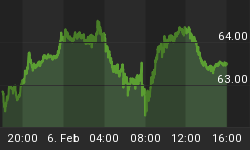The federal government once again has reached the limit of its legal ability to borrow money, meaning it cannot issue new Treasury debt without action by Congress to increase the debt ceiling limit. As of this month, our "official" national debt- which doesn't include the staggering future payments promised to Social Security and Medicare beneficiaries- stands at $14.2 trillion.
The debt ceiling law, passed in 1917, enables Congress to place a statutory cap on the total amount of government debt rather than having to approve each individual Treasury bond offering. It also, however, forces Congress into an open and presumably somewhat shameful vote to approve more borrowing. If the new Republican majority in the House of Representatives gives in to establishment pressure by voting to increase the debt ceiling once again, you will know that the status quo has prevailed. You will know that the simple notion of balancing the budget, by limiting federal spending to federal revenue, remains a shallow and laughable campaign platitude.
It is predictable that Congress will once again merely delay the inevitable and raise the debt ceiling, after the usual rhetoric about controlling spending, making cuts, and yes, raising taxes. We have heard endless warnings about how irresponsible it would be to "shut down the government." The implication is that sober, rational, mature pundits and politicians understand reality, while those who oppose raising the debt ceiling limit are reckless ideologues who will harm the economy just to make a point.
But like any debtor that has to reduce its spending, the federal government simply needs to establish priorities and stop spending money on anything other than those priorities. Interest payments on our federal bond debt likely will amount to about $500 billion for fiscal year 2011, an average of $41 billion per month. Federal tax revenues vary by month, but should total around $2 trillion to $2.5 trillion for FY 2011-- an average of perhaps $180 billion per month. So clearly the federal government has sufficient tax revenue to make interest payments to our creditors. For now, those interest payments represent about 12% of the total federal budget.
What nobody wants to admit is this: even if the federal government has only $1.5 trillion remaining to spend in 2011 after interest payments, this is PLENTY to fund the constitutional functions of government. After all, the entire federal budget in 1990 was about $1 trillion. Does anyone seriously believe the federal government was too small or too frugal just 20 years ago? Hardly. So why have we allowed the federal budget to quadruple during those 20 years?
The truth is, in spite of how cataclysmic some might say it would be if we did not pass a new debt ceiling, it is hardly the catastrophe that has been advertised. The debt ceiling is a self-imposed limit on borrowing. The signal congress sends to worldwide markets by raising the debt ceiling is simple: business as usual will continue in Washington; no real spending cuts will be made; and fiscal austerity will remain a pipe dream.
When our creditors finally wise up and cut us off, we will be forced to face economic realities whether we want to or not. It would be easier to deal with the tough choices we face now, on our own terms, rather than wait until we are at the mercy of foreign creditors. However, leaders in Washington have no political will to admit that we cannot afford to continue spending without any meaningful limit. They prefer maintaining the illusion and putting off reality for another day.















